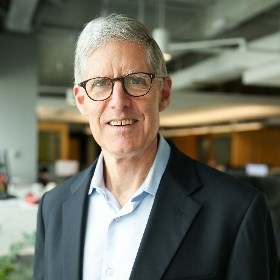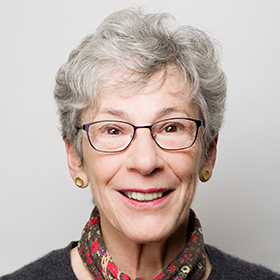(This article originally appeared in the November 4, 2010, issue of The Chronicle of Philanthropy.)
After 10 years of advising philanthropists, we can deeply empathize with the feelings of the woman who recently sent us the following note: “I’m giving away money—some would say lots of money, and yet it pales in comparison to the needs I see all around me. I want my giving to do the most, but how?”
Her concern is well founded. It’s easy to write a check, but it is very difficult to make a difference. Indeed, philanthropy’s natural state is satisfactory underperformance.
Why? Because giving money away smartly, so that it not only gets results but also gets more and better results over time, is excruciatingly hard. Not for nothing are many social problems called “intractable.” Helping to change the life of a child born into poverty or forestalling the effects of global warming is fundamentally harder than making the proverbial widget.
Beyond the sheer difficulty of issues like generational poverty, failing schools, and crippling diseases that lead to underperformance, philanthropists also must grapple with a paramount and terrible truth: in philanthropy, excellence is self-imposed.
There are no external pressures to retain customers, outperform competitors, or please shareholders. The pressure to deliver great results—and the very definition of what constitutes “great”—is largely a function of the individual donor or foundation.
Such self-imposed accountability is not a natural act; it is far easier to sidestep the rigorous thinking, relentless discipline, and the inherently tough decisions that accompany genuine accountability. Philanthropy is typically like a college course graded on a pass-fail basis, in which a “pass” is equated with “success”—and the students essentially grade their own exams.
Satisfactory underperformance does not have to be the norm. There are many inspiring examples of organizations that have cleared the performance hurdles and are models of the promise the nonprofit world holds.
Consider the story of the partnership between the Fisher family and the Knowledge Is Power Program Foundation, better known as KIPP.
When Don Fisher stepped down as chief executive of the Gap, he and his wife, Doris, looked for ways to increase their involvement in philanthropy. A graduate of San Francisco public schools, Mr. Fisher honed his commitment to helping children by serving more than 30 years on the board of the city’s Boys & Girls Club. More and more, he began to worry about how youngsters were faring in school.
“The interest Doris and I have in improving public education comes from our worry that the gulf is growing, not as much between the 'haves’ and 'have-nots’ anymore but between the 'knows’ and the 'know-nots,’” he said at the time.
With greater freedom over hiring, budgets, and leadership, charter schools seemed the best way to tackle education’s huge problems. They also had another advantage: successful efforts could be copied around the country.
But the Fishers didn’t just arbitrarily decide what excellence in education was, they started out by hiring an expert, Scott Hamilton, then the Massachusetts associate commissioner of education for charter schools. After a full year of searching and learning, they narrowed their focus to the Knowledge Is Power Program.
At the time, KIPP was just two middle schools in Houston and New York City, but it fit the Fishers’ self-imposed excellence standards on every dimension. It had a strong, results-oriented approach to education. Expectations for students were high. The organization had a compelling focus on making college the goal for all students. And the visionary co-founders and Teach for America alumni Mike Feinberg and Dave Levin, had solid ideas about how to spread the approach to other cities.
The Fishers committed $15-million over three years to start the KIPP Foundation, a sum intended to help KIPP start to achieve its national ambitions. From their frequent communication with KIPP leaders, the Fishers also quickly realized that KIPP needed more than direct contributions to make a real difference in kids’ lives.
For starters, KIPP schools absolutely had to have the right teachers and principals to succeed. Where were they to be found?
When the Fishers learned that two-thirds of KIPP principals were alumni of Teach for America, they began to make big gifts to help that organization grow.
Today, 28 percent of KIPP teachers are teachers or alumni from Teach for America.
The Fishers also worked with KIPP to start and finance the Fisher Fellowship, a yearlong program designed to prepare individuals to open and lead high-performing KIPP schools. Through such programs, KIPP has developed and retained its outstanding faculty, and 73 percent of KIPP school leaders began as KIPP teachers.
Relentlessly seeking excellent results, the Fishers and KIPP also strove to learn what was working and what wasn’t through transparent sharing of real results. When it came, they wanted the bad news unvarnished. KIPP’s public, annual report card, which publishes the results of every KIPP school, was Don Fisher’s idea.
The results speak for themselves: Since the KIPP Foundation’s founding in 2000, KIPP has grown to 99 schools in 20 states plus Washington, D.C., teaching more than 26,000 students. KIPP is nationally recognized as the gold standard in charter education. A total of 95 percent of students who complete eighth grade with KIPP graduate from high school, versus the national average of fewer than 70 percent. Also, 88 percent of KIPP eighth-grade graduates have gone on to college, far above the national average of 41 percent from low-income families. As for increasing its impact, KIPP is planning to double the number of students served by 2015.
Today, the Fisher family is KIPP’s largest national donor, contributing more than $70-million toward the growth of the network over the past decade; a significant sum, to be sure, although perhaps not as significant as the cumulative time, influence, and leadership they have also given.
Don Fisher died last year, but Doris continues to support KIPP, and their son John succeeded Don as chair of the KIPP Foundation board.
This tremendous philanthropic journey, and the opportunity it has created for tens of thousands of young people, began with the strong beliefs of Don and Doris Fisher and their equally strong self-imposed quest for philanthropic excellence.
More than ever, many engaged donors like the Fishers are setting high bars for themselves; working to create the most results possible from their limited resources. They recognize that while generosity—giving big—is clearly valued, it is essential for society that philanthropists also give smart. By doing so, they bring themselves the deep joy that comes from using one’s gifts to the fullest.



